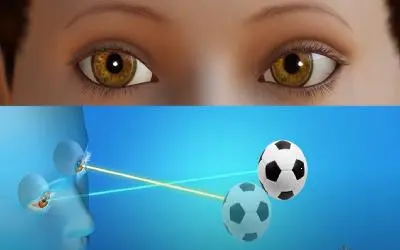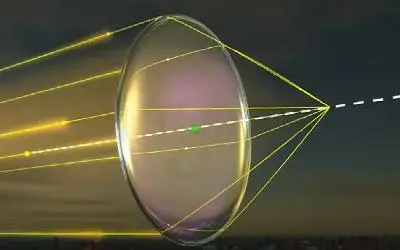What is Nystagmus?
Nystagmus is an involuntary eye movement disorder characterized by rapid oscillations of the eyes in various directions – horizontally, vertically, or even in a circular pattern. This condition often impairs vision, complicating tasks like reading and affecting balance and coordination.
Prevalence in Malaysia:
In Malaysia, nystagmus is a significant concern. A study from the Optometry Clinic at Universiti Kebangsaan Malaysia reported nystagmus as the second most common vision disorder in children, following congenital cataracts. It affects approximately 0.06% of children aged 7 to 17 years. Notably, a high incidence of nystagmus is observed in children with Down Syndrome, with about 33.3% (7 out of 20) affected. Despite this prevalence, nearly 40% of these children achieve satisfactory bilateral vision.
Symptoms of Nystagmus:
Individuals with nystagmus may experience:
- Rapid, uncontrollable eye movements.
- Sensitivity to light.
- Balance issues and dizziness.
- Difficulty with night vision.
- Blurred or shaky vision.
- A need to tilt the head for better vision.
Causes of Nystagmus:
Possible causes include:
- Genetic predisposition.
- Neurological conditions like stroke, brain tumors, or head injuries.
- Toxicity from substances like alcohol or drugs.
- Central nervous system or inner ear disorders.
- Eye diseases or albinism.
Common Treatments:
Treatment approaches can vary, including:
- Prescription glasses or contact lenses to improve vision and reduce eye movements.
- Surgical procedures, such as tenotomy, to adjust eye muscle positioning. While surgery doesn’t cure nystagmus, it can enhance vision and reduce the need for head-tilting.
Can Nystagmus Be Managed?
While there’s no cure for nystagmus, Neuro Vision Specialist offers innovative strategies to manage and reduce its impact. Our approach, new to Malaysia, focuses on training individuals to better control their eye movements, enhancing daily functioning.
Why Address Nystagmus?
Managing nystagmus is crucial as it can significantly affect reading, cause fatigue and frustration, and impact social interactions, academic performance, and overall quality of life.
Neuro Vision Specialist’s Approach:
At Neuro Vision Specialist, our experts, certified in Vision Development and Rehabilitation in the US and Australia, leverage techniques that enhance the eye-brain connection. With over a decade of experience, we’re committed to bringing these advanced treatments to Malaysia, providing specialized care for adults, teenagers, and children with nystagmus.
Seeking Assistance:
Understanding that nystagmus and its treatment may be new to many in Malaysia, we’re here to address all your questions and concerns, especially for parents learning about their child’s condition for the first time. You are welcome to contact us for assistance.



